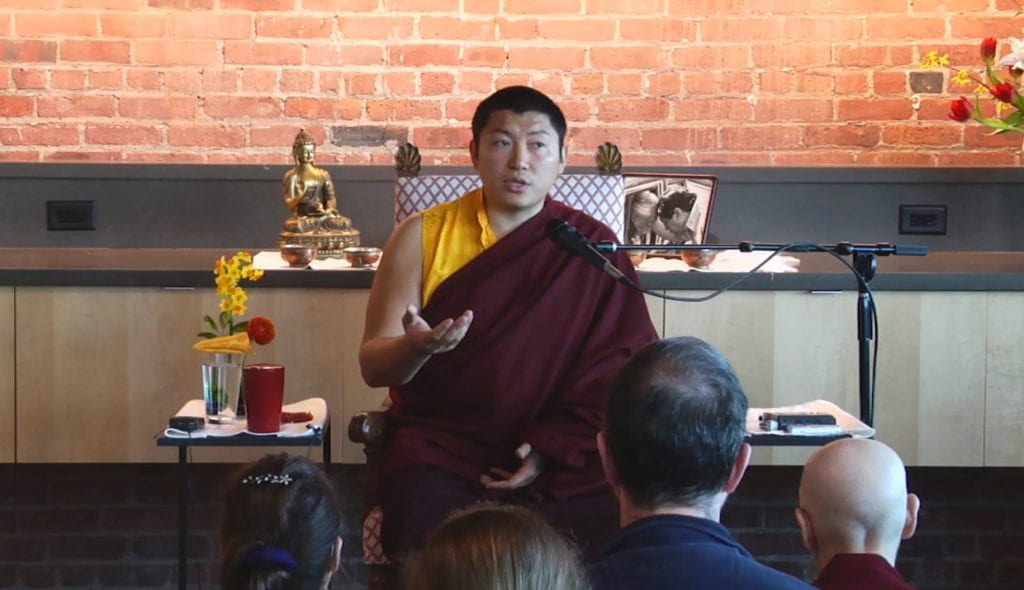Patience!
Have patience with Dharma teachings and with yourself. In this very short video teaching, Phakchok Rinpoche advises us on how we can develop the proper attitude for receiving Buddhist teachings. The advice comes down to listening with an open mind.
Patience When We Don’t Understand
When we receive teachings we may like certain parts; they sound quite nice or quite sensible. On the other hand, there are some things that we don’t understand or agree with at all and we think are not so suitable. Sometimes the teachings make sense right away and sometimes they don’t.
Please don’t get frustrated, Rinpoche advises. Instead, be patient. It takes time to develop understanding. That is perfectly okay. Buddha’s teachings have very deep meanings. Sometimes, the deep meaning of the teaching is not immediately apparent. Right now, we may find that certain topics or teachings don’t make so much sense. Everything will not make sense from the very beginning. But at a later date we may be ready and then the teaching we receive today may be absolutely perfect.
Try to develop some patience with the teachings. Give yourself some space and be open-minded. Remember that it takes time to develop patience when we enter a new practice. Just as we need to give some time to adjust to new exercise programs, new diets, new jobs, or new locations–the Dharma can challenge us. But, if we allow ourselves to develop a “wait and see” attitude, we may find that these new challenges can be quite exciting. Patience with our judging mind is an important skill to learn.
Patience: Reflection Exercise
It takes time to develop patience when we enter a new practice. That’s OK–and it is best to be honest with ourselves. Are there things you don’t understand–or new ideas that seem hard to accept?
Start writing those down! If you keep a journal of questions and doubts, you are actively engaging with the teachings. That’s much more intelligent than just shutting down when you hear something that seems strange. It is great to question, but we can reserve our judgment. We can write our questions down, and then keep practicing, and see how our own understanding develops over time.
It is liberating to realize that we may not actually know the answers. Not-knowing is a wonderfully open place to dwell. So, instead of thinking we have to have all the answers, we can try to follow the teachings as you would undertake an experiment. What happens if you practice what you’ve heard? By patiently sticking with the hard parts, and practicing what you’ve learned, you may make some exciting discoveries!










Responses
Thank you again Rinpoche!
[…] Phakchok Rinpoche offered this reminder on being patient with the Buddhist […]